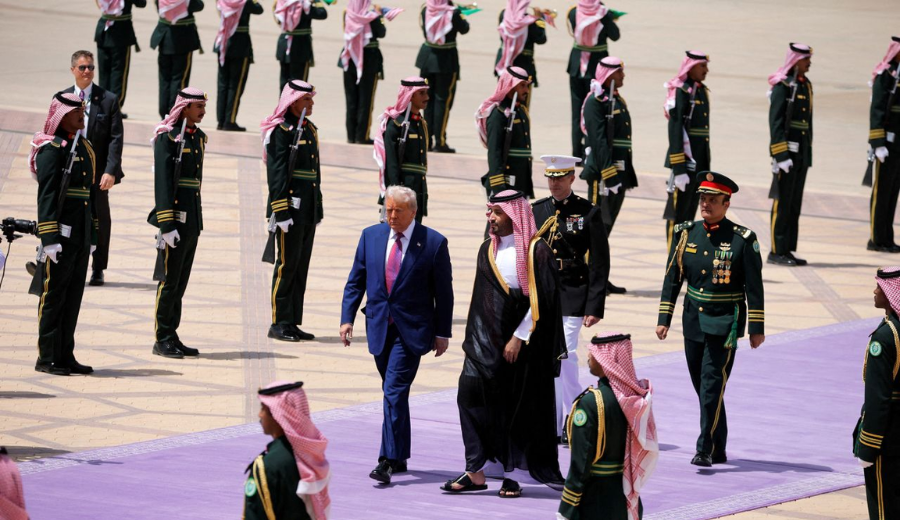In a significant shift in U.S. foreign policy, President Donald Trump announced the lifting of all sanctions on Syria during his visit to Riyadh, Saudi Arabia, on May 13. This move comes ahead of his planned meeting with Syria’s interim President Ahmed al-Sharaa, formerly known as Abu Mohammad al-Jolani, a former Al Qaeda leader who played a pivotal role in overthrowing Syrian dictator Bashar al-Assad.
rump’s decision aims to support Syria’s reconstruction efforts after 14 years of war, signaling a departure from previous U.S. policies that imposed strict sanctions on the country. The announcement was met with applause from Saudi Crown Prince Mohammed bin Salman, highlighting the warming relations between the U.S. and Gulf states.
1. Groundbreaking Pivot: Trump Lifts All Sanctions on Syria
In a bold move during his visit to Riyadh, Saudi Arabia, President Donald Trump announced the lifting of all sanctions on Syria. This decision marks a significant shift in U.S. foreign policy and precedes his highly anticipated meeting with Syria’s interim President Ahmed al-Sharaa, formerly known as Abu Mohammad al-Jolani. Al-Jolani, once a key figure in Al Qaeda, played a crucial role in the ousting of Syria’s former dictator, Bashar al-Assad.
This policy reversal aims to bolster Syria’s post-war reconstruction efforts after 14 years of conflict, diverging sharply from previous U.S. sanctions that had tightly constrained the nation. The announcement was warmly received by Saudi Crown Prince Mohammed bin Salman, signaling strengthening ties between the U.S. and Gulf states.
2. Historic 142 Billion Arms Deal with Saudi Arabia
During his visit, Trump also secured a record−breaking142 billion arms deal with Saudi Arabia, touted as the largest defense sales agreement in history. The expansive deal involves multiple U.S. defense companies, focusing on advancing Saudi capabilities in air force, space exploration, missile defense, and border and maritime security.
Additionally, Saudi Arabia has pledged a staggering $600 billion investment in the U.S., though details remain under wraps. This monumental economic partnership underscores the deepening collaboration between the two nations.
3. Controversial Gaza Proposal Ignites Outrage
Trump’s Middle East tour also brought a contentious proposal regarding the Gaza Strip. The President suggested that the U.S. take control of Gaza, envisioning its transformation into the “Riviera of the Middle East.” This plan, however, would necessitate the relocation of approximately 2 million Palestinians to neighboring countries, sparking widespread backlash.
Palestinian President Mahmoud Abbas has vehemently criticized the proposal, urging the United Nations to intervene and protect Palestinian rights. Abbas labeled Trump’s plan a blatant violation of international law, intensifying tensions in the already volatile region.
















